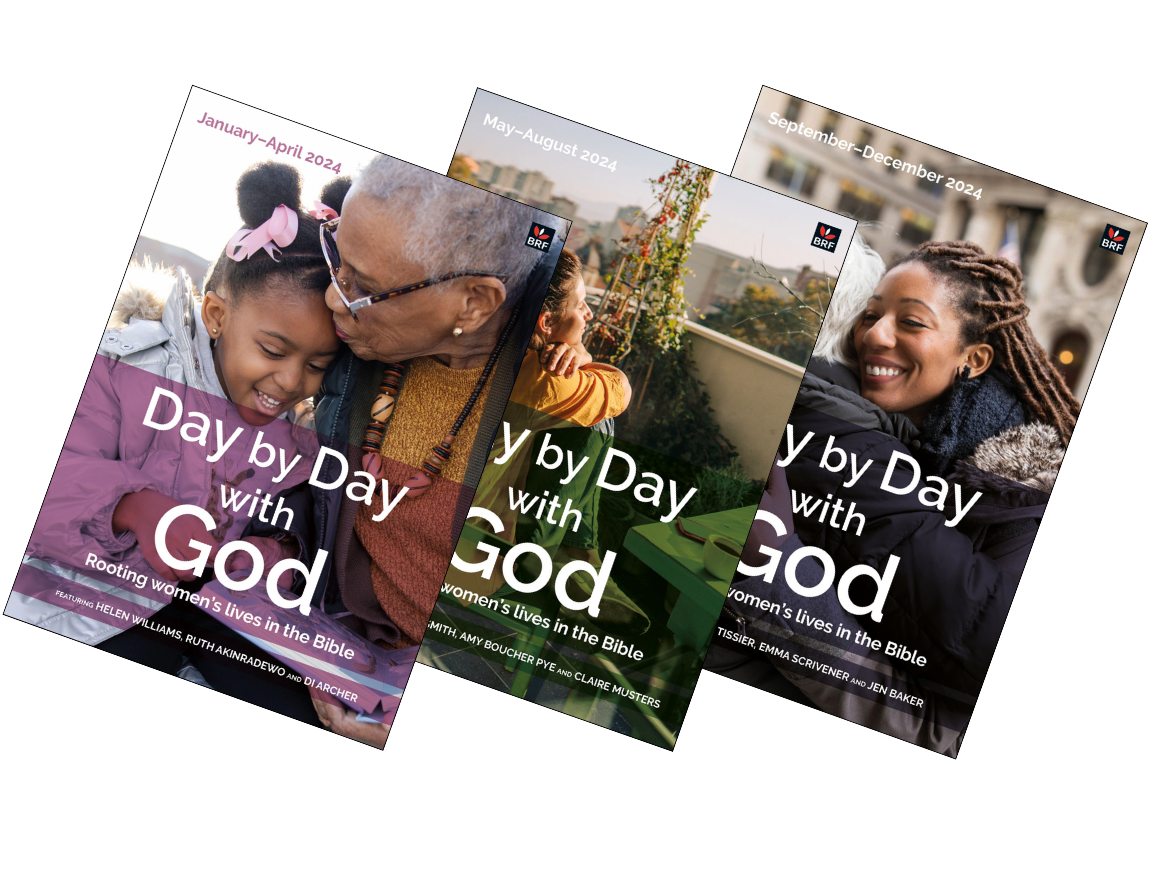The second part of our series highlighting the riches and range of our Bible reading notes is taken from Selina Stone’s reflections for Day by Day with God, 16–22 June, entitled ‘The creation story’.
21 April 2024
The creation story
At the beginning of the Bible, before we read anything else, we are presented with a poetic tale of how creation came to be. In this story, God is the main protagonist, working as one and three. God is present before anything else, as the source of life and reality. We are drawn into an account of God calling into existence what does not yet exist, recognising its goodness and delighting in it. We find God setting rhythms and patterns into creation, which will allow it to keep on going throughout time, with creatures and plants able to reproduce. We learn that people were made in God’s image with great care and then given unique responsibility to govern the earth. It is a story which begins with a blank canvas and ends with a masterpiece.
Yet reading the creation narratives is particularly poignant for us, as we live in the reality of an environmental crisis. All over the world, extreme weather events are becoming increasingly common. The natural world, including wildlife, sea creatures and forests, is under threat due to centuries of over-consumption and greed. In many ways human action is undoing the harmonious picture of creation which we find in Genesis.

In many ways human action is undoing the harmonious picture of creation which we find in Genesis.
Life in the darkness
Now the earth was formless and empty, darkness was over the surface of the deep, and the Spirit of God was hovering over the waters. And God said, ‘Let there be light,’ and there was light. God saw that the light was good. Genesis 1:2–4 (NIV)
Culturally we have been conditioned to see darkness as bad and light as good. Whether in films, in advertisements, in art or in language, we associate what is dark with evil and what is light with what is pure and good and right. And yet right at the start of the creation story we begin with darkness that is full of potential. The darkness is not evil; it is a deep place, waiting undisturbed; it is a place where God’s Spirit is pleased to dwell. The image I have of the Spirit of God hovering over the waters is that of a great bird, swooping down to take a closer look, and then flying just over the waters so its wings skim the surface. It is quiet just before God starts to speak.
Both in the world around us and in our own lives, we might experience periods that feel dark. We might try to run away from it, but often we cannot. It can surround us or even consume us. The temptation again is to see darkness as bad, something to be avoided where possible. But this passage encourages us first to remember that the same Spirit of God who hovered over the waters before creation is present with us. The Spirit does not simply hover over our lives, but perches right next to us, or even on our heads. God is not afraid of the dark, even if we are – God sees the potential of what might be created out of it. Where we can only see formlessness or emptiness, God sees depth and the beginning of a whole new reality.

The same Spirit of God who hovered over the waters before creation is present with us. The Spirit does not simply hover over our lives, but perches right next to us, or even on our heads.
Say what you (want to) see
I used to love watching the show Catchphrase on TV when I was younger. Images would be revealed a bit at a time as each tile was removed and contestants had to try to guess what phrase each image represented. The host would remind them to ‘just say what you see’, which was, of course, easier said than done. In the opening verses of Genesis, we find God doing the opposite – God does not say what God sees; God says what God wants to see. Using all of his creative power, God simply says, ‘Let there be,’ and there is.
The first thing we learn about God from the Bible is that God is the reason everything exists. God is the source of life, of reality, of the world, of us. And all of it started with a word. There are many different perspectives on the power of our words in our faith. Some believe we have this same power to say things and create out of nothing; others that our words only have power when we use them to pray for God to act. The power of words in how we speak to others and even ourselves is also important to consider. Wherever we stand, what we say and what others say can have a huge impact on our emotions, our mental well-being, our decision-making and on what we create. This passage reminds us of God’s creative words and power, and also encourages us to consider the power of our words and the realities we create with them.


